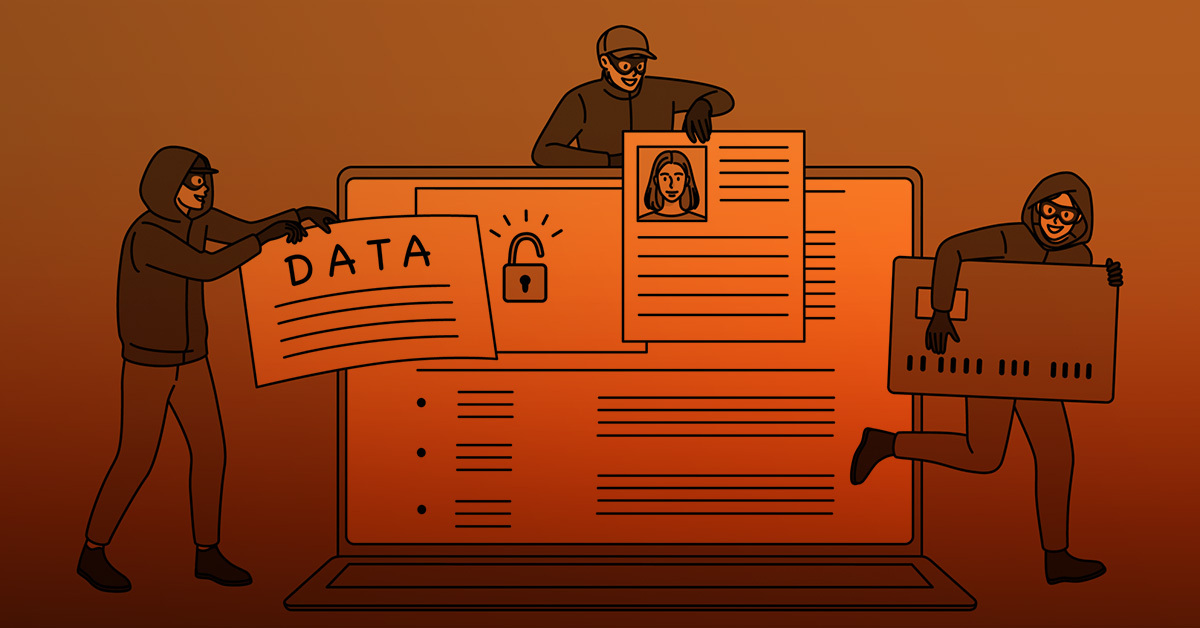The Deduce 2022 Fraud Forecast
Sunny, with a chance of ATO

Sunny, with a chance of ATO
New year, new resolutions. For some, that means a Planet Fitness membership or Dry January; for us, it means continuing to neutralize bad actors and innovate for a fraud prevention industry saddled by hindered data access and outmoded tactics.
What changes does the Deduce team want to see happen in 2022? Here are a few predictions from our resident soothsayers.
Ari Jacoby, Founder/CEO
Ari believes “coopetition” among cybersecurity firms will help close the data poverty gap in 2022.

From 2019 to 2020, we saw a 300 percent jump in (ATO) account takeover fraud alone. This year, unfortunately, that figure is likely to get worse. Most will attribute this to the uptick in online usage amid the pandemic, which is certainly valid, but data poverty plays a role as well.
Data is the new currency. Most of the valuable data — specifically real-time behavioral data — is confined within the walled gardens of the MANGA Gang. This makes ‘coopetition’ between cybersecurity firms imperative.
Competing companies in the financial, adtech, and healthcare industries often exchange actionable data without any problems. Until fraud prevention companies follow suit, predictive algorithms won’t reach their full potential and ATO will continue to keep execs up at night. I’d love to see the data poverty gap close in 2022, but I’m afraid the worst possible outcome from this issue — another massive data breach — could happen again this year if cybersecurity leaders don’t put their heads together.
Robert Panasiuk, CTO
Robert anticipates a growing, albeit insufficient, number of legacy software solutions changing the way in which they deploy their apps.

This year, we’ll see more companies shift to a devops deployment model that gets new customers up and running in hours instead of months. However, even with the devops model’s ability to fasttrack go-to-market and deployment — an absolute must in today’s landscape — some enterprise businesses will stick to their legacy guns.
Other legacy holdouts will struggle to pass up the efficiency of the devops model, particularly those needing a fraud prevention solution that outraces fleet-footed fraudsters. Rapid deployment, unshackled by the months of development and testing required by legacy systems, delivers a first-class customer experience. The devops approach also enables best-of-breed solutions to be easily integrated. Case in point: the Deduce MFA Intelligence solution will be available in the Auth0 marketplace, which will reduce false positive MFA challenges by more than 50%.
A mass migration to the devops model? Probably not in 2022. But I’m guessing more execs at the C-suite level will finally part ways with unmaintained, outdated legacy technology and prioritize devops-style fraud tools that update seamlessly and can keep up with fraudsters and user demands. Similar to last year’s Okta-Auth0 acquisition, we may see another major legacy company buy a devops-based solution outright.
Adish Kasi — VP Sales
Adish expects to see a significant jump in passwordless adoption this year.

Passwordless login solutions are already on the rise. In 2022, I believe we’ll see a significant jump in passwordless adoption and user buy-in.
Modern app users are growing more and more tired of keying in username/password combos upon each visit, and companies loathe the friction — and subsequent churn — this causes. In 2021, Experian’s Global Identity & Fraud Report polled more than 2,700 businesses and 9,000 consumers about their preferred login approach. Passwords landed outside the top three, beat out by physical and behavioral biometrics and SMS pin codes.
This year, I see a larger contingent of users (and companies) prioritizing a seamless customer journey accompanied by a transition to passwordless solutions. However, the barrier to entry, and the achilles heel, for mass adoption in this space entails designing an intelligent solution for device enrollment and account recovery. What happens if your primary device is lost or stolen? How does an organization curtail risk at the moment of device enrollment?
Identity intelligence, as a new categorical solution, will emerge as a vehicle for helping organizations through the transition to passwordless solutions.
That concludes our resolutions. If your resolutions have fallen by the wayside, here’s a free one from Deduce: leverage real-time insights to protect your users (and user experience) from identity fraud.
The Deduce Identity Network is just the ticket. Learn how our coalition of 150,000 websites and apps and over 450 million anonymized profiles can mitigate account takeover, account creation fraud, and other cyberthreats.



